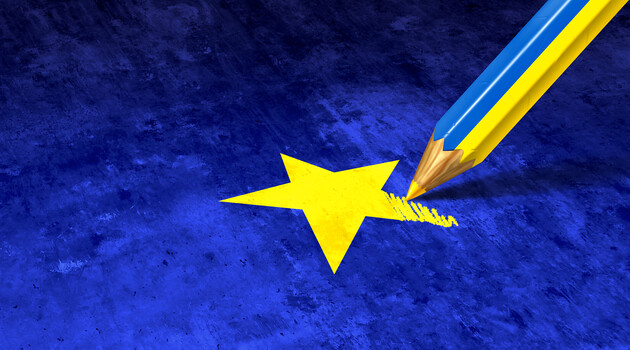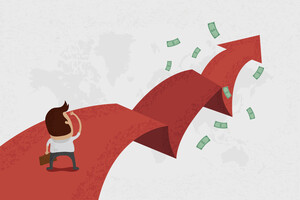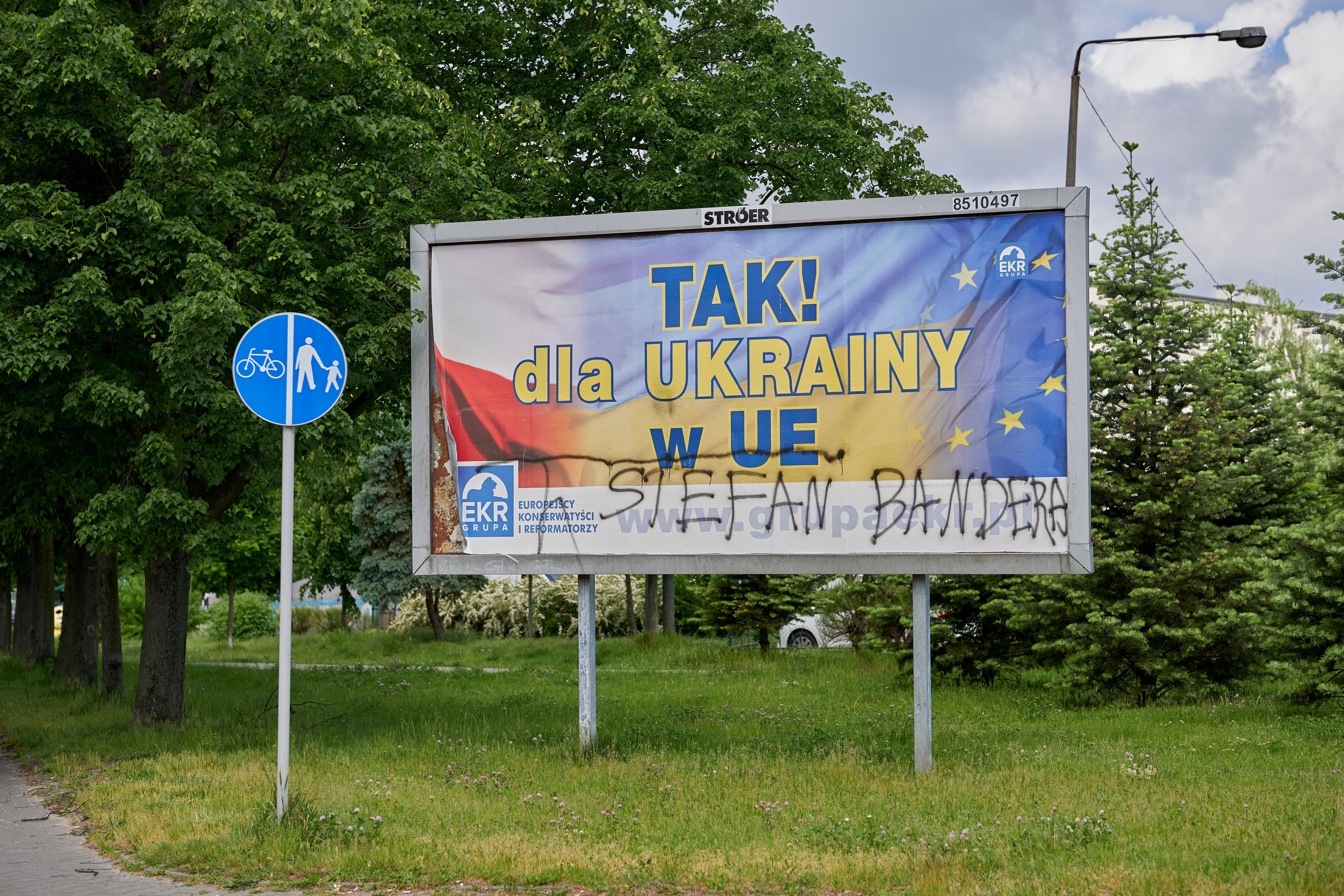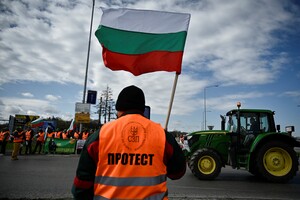Ukraine and "near abroad countries": to be "at home among strangers"
In order for our country to be fully accepted and understood by the "neighbors", in particular, the "near abroad countries", it is necessary to protect them, to truly implement European legislation, to clear the field of bilateral relations.
Ukraine's path to Europe is "the path to one's home," President Volodymyr Zelenskyy announced in the European Parliament on February 9, 2023. He is not the first head of state to say that Europe is "our home". However, he is the first to have a real opportunity to make this dream come true.
At first glance, it seems that everything is quite simple: having received candidate status in advance in June 2022, in order to consolidate it, we must fulfill seven generally simple conditions of the European Commission, which Kyiv promised to do in six months. Fulfillment of all requirements allows our country to move to the membership negotiation process.
The content of the negotiations is the gradual adaptation of domestic legislation to the set of legal acts of Brussels (acquis communautaire) under 35 chapters, grouped into six clusters. Achieving compliance will take years and is fixed at each stage by a unanimous decision of all EU countries.
The solution depends on…
The seven conditions mentioned above relate primarily to the legislative consolidation of the rule of law, the fight against corruption and ensuring the rights of national minorities. It is worth noting that all of these requirements have not yet been fully met, but the government promises to finish work on them by the end of spring. Whether this will happen and, therefore, whether to start negotiations, each country will express its opinion - the Netherlands, Cyprus, Hungary, and Estonia. And in the same way, all 27 states will allow Ukraine (or not) step by step to move towards membership in the union.
In the European Union, all members are equal, but depending on the topic, some are a little more equal than others. In strategic matters, the ideas and solutions of issues adopted by France and Germany have more importance and weight, and in matters of economic and energy security, the interests of those who are vitally dependent on a single source of income of some services, goods or fuel are taken into account and are more important. In this case, one can cite as an example Greece, which is dependent on tanker transportation, or Slovakia, whose economy depends on Russian oil. In the case of Ukraine, the right to make the decisive decision regarding Ukraine's accession to the European Union will belong to "Ukrainologist experts", namely countries that daily face questions about its territory, economy, citizens, its problems and challenges. That is, the right of the main decision will belong to those countries, which are called Central and Southern Europe – our neighbors, the Baltics, the Balkans.
It is these twelve states, coincidentally united in the format of the Three Seas Unity Initiative (3SI), that should act as our lobbyists on the way to Brussels, and Kyiv, respectively, must be fully accepted and understood by the government officials of their capitals.
When exactly it will be felt that we are "at home among strangers", each state will decide independently. At the same time, such aspects as political understanding, the history of relations, the depth of economic interdependence, relations between societies/civil communities, and not only the issue of trade, will be taken into account.
The course of military events, the victory of the Armed Forces of Ukraine is the primary factor of assessment. If our country goes on a successful offensive against the enemy, it will activate such processes as the growth of positive expectations regarding the end of hostilities, the return of refugees, the revival of the economy, the reduction of security risks, and therefore the weight and importance of Ukraine in the eyes of every EU state will increase. The closer it is to our borders, the more important this factor is.
The second factor is the quality of meeting the requirements for obtaining a full-fledged candidate (a kind of simplified version of the so-called Copenhagen criteria), which opens the way to the negotiation process. All member states live by the same rules within the mentioned acquis communautaire. In Ukraine, many aspects of this legal concept are completely different than required or very different. We have already implemented some part of the acquis in the process of implementing the European Union–Ukraine Association Agreement, starting from 2014. The Verkhovna Rada of Ukraine adopted the relevant legislation, the Cabinet of Ministers of Ukraine supplemented it with by-laws if necessary, the European External Action Service (EEAS) and the EU representation in Kyiv monitored both the process and the results in practical life.
By the beginning of 2023, according to the government's estimates, Ukraine has fulfilled almost 80% of its obligations under the UA. However, they admit that the requirements for the candidate are "a completely different quality, but also a different volume of tasks and responsibilities, which is not even dozens, but hundreds of times superior to everything we have done so far within the framework of the Agreement." Twelve evaluators do not want to feel discomfort when crossing the border with Ukraine. Neither in the protection of investments, nor in the quality of roads, nor in personal safety.
Today, the difference in many aspects is quite noticeable, sometimes even shocking. In this context, one can recall the story of pensioner Oksana Yakovets about the exorbitant costs of her stay with a broken leg in a Ukrainian hospital: at one time, tens of thousands of our compatriots were truly stunned by this. It is worth noting that it was not about a remote village, but about the "advanced" exemplary city of Lviv! This story is one and a half years old. Since then, hundreds and hundreds of patients have written and continue to write about similar cases. In fact, it is about systemic bribery in the country's medical system. Nothing similar will happen in case of illness or injury to the citizens of the countries that belong to the Three Seas Unity initiative, as well as to Ukrainians who are visiting their territory in the status of temporary protection. Such a situation will never happen not only in wealthy Austria, but also in less prosperous Romania. This fact is confirmed by many posts on social networks.
Another, more recent story is no less loud – about the exorbitant amount demanded in Ukraine from the Turkish drone manufacturer "Bayraktar" for connecting to the power system. As it turned out, similar problems are the "norm" for both domestic and foreign investors. Therefore, both for a citizen and for a businessman from EU countries, our political processes and various aspects in our country today are perceived as incomprehensible and alien. And when a Portuguese expert, who is not well versed in all aspects of our political situation, inquires about the state of affairs in Ukraine from a Bulgarian close to us, and who, accordingly, is familiar with all the complex issues that Ukraine has to solve. He will give a disappointing answer to the expert regarding the solution to these problems in our state.
There are many examples when our country, do not fit into the format of the current EU in matters of the economy, the legal system, and civil society. However, there are those who can help our country. Millions of temporary Ukrainian emigrants, who will return home after the victory, already know what exactly needs to be changed, and will probably be actively engaged in it. Unfortunately, without the support of the authorities, the implementation of new changes can take a long time. At the same time, it is worth remembering that political figures in Brussels will not wait so long for these changes.
This special third factor
The third factor that will determine the attitude of the evaluators is "individual", that is, Kyiv's bilateral relations with each of them. Although it is strange to state this, Ukrainian society for some reason considers itself an expert and a judge in this matter. How many instructions, advice and demands addressed to diplomats, how to behave with each specific state, one has to see on social networks and hear on talk shows! There is a well-known saying: citizens understand football, architecture and foreign policy better than experts. In Ukraine, it is 100% fair! In fact, in interstate relations, people mostly pay attention to superficial factors, because they are not familiar with the details.
Today, relations between Ukraine and, for example, Latvia look almost perfect. This state is among the champions of assistance in political support, in the treatment of our fighters, in the defense of Ukrainian requests in international organizations. However, experts know that for years the banking institutions there served as "laundering machines" for laundering corruption gains, and fraudsters from Ukraine were among the most active clients. The Ukrainian "PrivatBank" also left its mark here, and the "Russians" could not do without. And this is a topic for future in-depth checks by Brussels financiers, which can get on the nerves of citizens and regulators of both states.
It has already become a cliché to call Poland "Ukraine's lawyer" – whether it is about joining the EU or NATO, or on any international platforms. During the last visit to Warsaw, President Zelenskyy and President Duda declared our countries fraternal. They talked about the "disappearance" of borders. Apart from that, they compared Ukrainian-Polish rapprochement with Franco-German reconciliation, this backbone of European integration. But the recent strikes of Polish farmers regarding "Ukrainian grain dumping" demonstrated how dangerous the so-called "borderlessness" can be in the economic sphere, if it is not properly controlled. It is also known that not only Ukrainian agricultural exports can cause concern to neighbors. These concerns may also arise regarding matters of industry and computer technology.
There are threats to the Ukrainian-Polish bilateral movement in the spiritual sphere as well. After all, the historical disputes between Kyiv and Warsaw have not yet been finally resolved. Indeed, an understanding was practically found regarding the "Vistula" operation. Instead, what is known in Poland as the " Volhynia massacre" is still a bloody stain on bilateral ties. And this is only one of the issues that may prove to be an obstacle on the way to Brussels.
European integration is, among other things, based on solidarity. This positive thing unexpectedly showed Ukraine its negative aspects. Following Poland, Romanians and Bulgarians joined in protest against "Ukrainian agricultural dumping".
Today, Hungary makes groundless demands to change the "unfair" Ukrainian language legislation, which it relentlessly informs all EU countries about. Other states, whose national minorities live in our country, treat this topic more constructively, not least because of the war. Will their position change when we win and peace comes? And it is not only about the neighbors: Bulgarians also live in Ukraine, there are Czech villages, there were (and, we hope, remain) large settlements of Greeks in Donetsk region.
Among the 12 countries of the Three Seas Unity initiative, there is one special one – Austria. It is, perhaps, like no other European capital, loved by the citizens of Ukraine – supporters of the "Russian world", fugitives from subpoenas and outright traitors. It is symbolic that Dmytro Firtash, accused of large-scale corruption, has been hiding from American justice in the Austrian capital since 2014 (!). In addition, it is worth noting that he, and hundreds of other people with a similar situation, told a lot about Ukrainian political, economic and legal realities to local lawyers. This knowledge will turn into questions that politicians in Vienna will ask Kyiv during European integration. In short, we have a "skeleton in the closet", probably for each partner, and the closer the partner, the more dangerous the "skeleton". Is it possible to get rid of them somehow?
We need to clean the closet right now!
Perhaps this is the best advice, because no sincere bilateral relations today will serve as a pass to Brussels tomorrow. Moreover, the attitude of the "Ukrainologist" countries towards Kyiv will not remain unchanged. For example, the elections that will be held in the fall in Slovakia, where the government that is extremely active in helping Ukraine currently rules, may change the balance of forces to the opposite. Therefore, it is necessary to take advantage of the favorable atmosphere and make sure that, even in a negative scenario, Bratislava will be sympathetic to Ukraine in the future. Sorting through and throwing away skeletons in the closet is scary and unpleasant. But in the capitals of the EU countries, such actions are enthusiastically supported. The government, which is not afraid not only to condemn its predecessors (and this is how Ukrainians are used to reacting!), but also to admit its own mistakes, is beginning to be perceived as a full-fledged member of the club. After all, these actions, and not only elections, are the backbone of a democratic system and a prerequisite for membership.
How to make the process effective and the result irreversible?
First of all, it is necessary to do a good job on the information front. Representative offices of the Ukrainian Institute (UI) should be opened in all the largest capitals of the countries of the Three Seas Unity initiative. However, no matter how powerful the Ukrainian Institute is, it will not cover the entire population of the host country. Instead, it is within the power of numerous Ukrainian temporary emigrants who are in these states, closer to their native borders. Having involved the diplomatic service, the Ukrainian Institute, in contact with Ukrainian social, religious, artistic, aid organizations, will reach both local state authorities and civil society. The goal is to feel the pain points of bilateral issues and find a cure.
The second mandatory component is conversations with local businesses, which should be conducted by their Ukrainian colleagues. Chambers of commerce, associations of producers, and investors should be involved in the work. Third, but not the last, are local authorities. Connections of Ukrainian regions, cities, districts, communities with close foreign partners are broad and productive. With each case, when some sphere of activity and specifics of its work on Ukrainian territory will become clear to foreign colleagues, the perception of Ukrainians as full-fledged members of the European Union will expand.
...While creating the position of Deputy Prime Minister for European and Euro-Atlantic Integration at one time, the government understood that an apparatus called an office was needed for effective work. The idea of its minimal scale is becoming clear only now. And we are only at the beginning of the journey.
Please select it with the mouse and press Ctrl+Enter or Submit a bug
















 Login with Google
Login with Google